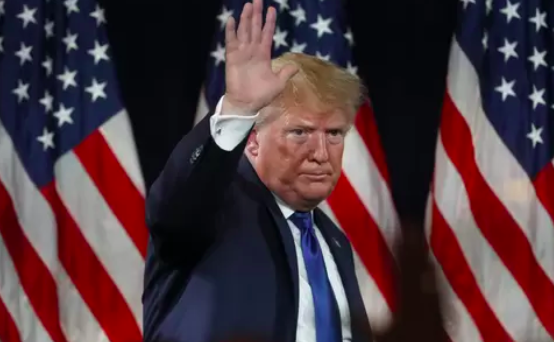Donald Trump, President of the United States of America, has been in the news attached to the word ‘impeachment’ for the past few months. However, as much as Trump’s impeachment has been discussed by the media, many remain confused by the impeachment, the allegations, the terms used and the constant changes taking place.
In order to help readers who are confused regarding the topic, The Athenaeum presents ‘A Beginner’s Guide to Trump’s Impeachment’:
What caused the impeachment inquiry?
The impeachment inquiry was announced on September 24th by Nancy Pelosi, a Democratic Party politician currently serving as Speaker of the House of Representatives. This impeachment inquiry is a direct result of the Trump-Ukraine scandal that came to light in September 2019.
The Trump-Ukraine scandal surfaced after an intelligence officer, who we now know is a CIA Officer, filed a whistleblower complaint to the inspector general detailing Donald Trump’s alleged wrong-doings. This intelligence officer is known within the impeachment as the whistleblower which is a term for individuals who expose illegal and unethical information within an organization.
In the official complaint, the whistleblower claimed that on July 25th, 2019 a phone call occurred between President Trump and the Ukrainian President Volodymyr Zelenskyy where Trump “sought to pressure the Ukrainian leader to take actions to help the President’s 2020 re-election bid”.
The whistleblower goes on to discuss how Trump wanted Ukraine to investigate potential opponent Joseph Biden and son Hunter Biden, assist in uncovering that allegations of Russian interference in the 2016 Presidential election originated in Ukraine, and locate and turn over the servers used by the Democratic National Committee which were reported to have been penetrated by Russian hackers in 2016. The whistleblower additionally alleged that efforts were made to restrict access to records relating to this call.
The report was sat on for a month when Director of National Intelligence Joseph Maguire advised that the complaint was not of urgent concern. By mid-September, the existence of the report was leaked, causing mass controversy.
In the days that followed Pelosi’s announcement of impeachment inquiry, the White House released both the whistleblower’s report and the official White House record of the Trump-Zelenskyy phone call to the public. Since the release of documents, more information has been demanded and either given or not given. The details can be found in detailed timelines.
What is being investigated in the inquiry?
The goal of the impeachment inquiry is to understand the events that took place around the July phone call with Zelenskyy and Trump’s as well as the possibility of subsequent abuse of power.
The House Intelligence Committee chair Adam Schiff is leading the impeachment inquiry and has given the public the main questions he plans to investigate:
- Did President Trump seek aid from a foreign country to help him in a U.S Presidential election again?
- Was the meeting with President Trump, which Ukraine desperately sought, being conditioned on Ukraine’s willingness to launch investigations for Trump?
- Did Ukraine have reason to believe that the military aid they desperately needed was being withheld due to these investigative conditions?
- Have any of the facts been covered up regarding President Trump’s conduct?
How does impeachment work?
Impeachment starts with the inquiry. Although announced by Nancy Pelosi, a resolution for the impeachment inquiry must be formalized by the House of Representatives.
On October 31st, 2019 with a vote of 232 to 192, a resolution for the impeachment inquiry was approved by the House of Representatives. This resolution, which was formalized, details how the impeachment inquiry will function going forward.
From this point, the House of Representatives will call on witnesses and gather evidence of Trump’s wrong-doings. They have already begun to do so, and evidence released can be seen in timelines of the impeachment.
The impeachment inquiry will move to a vote in the House of Representatives and if Trump is impeached the process will continue; however if Trump is not impeached the process ends.
The Senate would then hold a trial on whether to impeach the president, before moving to a vote. If Trump is convicted, he will be removed from office and Mike Pence will become president.
Will Trump be impeached?
At this point, it is impossible to know for sure whether Trump will be impeached or not. Democrats do hold a majority in the House of Representatives and evidence so far has pointed towards a likelihood of impeachment, but new evidence is turning up every day, making predictions difficult.
The Senate does hold the power in the actual impeachment, it will take 67 senators to convict Trump. As there are 53 (out of 100) Republican senators right now and based on the assumption all Democrat senators will vote yes, 20 Republican senators will need to vote yes in order for Trump to be impeached. It will be interesting to watch Senators’ reactions to the impeachment’s on-goings in the House of Representatives.
How does this affect the 2020 election?
If impeached Trump will be banned from running in the 2020 Presidential Election. This would mean a new Republican candidate would take his place.
Surprisingly, as shown in an article from the New York Times, the impeachment is not a major concern for the Democrats hoping to be the candidate in the 2020 election. The article describes how campaign topics have surrounded health care, the economy, and most importantly how they are going to beat Trump in the election.
Questions regarding the impeachment have rarely been asked at campaign events and it seems like the impeachment and election are viewed as separate matters to both Democrats and the public at this time.
What can we take from the impeachment?
Between the whistleblower’s complaint and the evidence that has risen since Pelosi’s announcement of the impeachment inquiry, it has become evident that it is easier than citizens may expect for wrong-doings to occur at high levels of government.
The U.S is a country known for being democratic and fair. There isn’t the kind of government corruption seen in some other countries around the world; however, this impeachment inquiry shows that government corruption can happen anywhere, even in democratic countries such as the U.S., U.K. or Canada.
This is not a concept that is new either, both Andrew Johnson and Bill Clinton were impeached due to violations during their respective presidencies. It is easy for the public to be fooled by a government official who ends up using their power wrongfully, and it may not be the last.
This impeachment is a reminder for voters to vote wisely in the 2020 Presidential Election, remembering that any candidate is capable of abusing their position.





